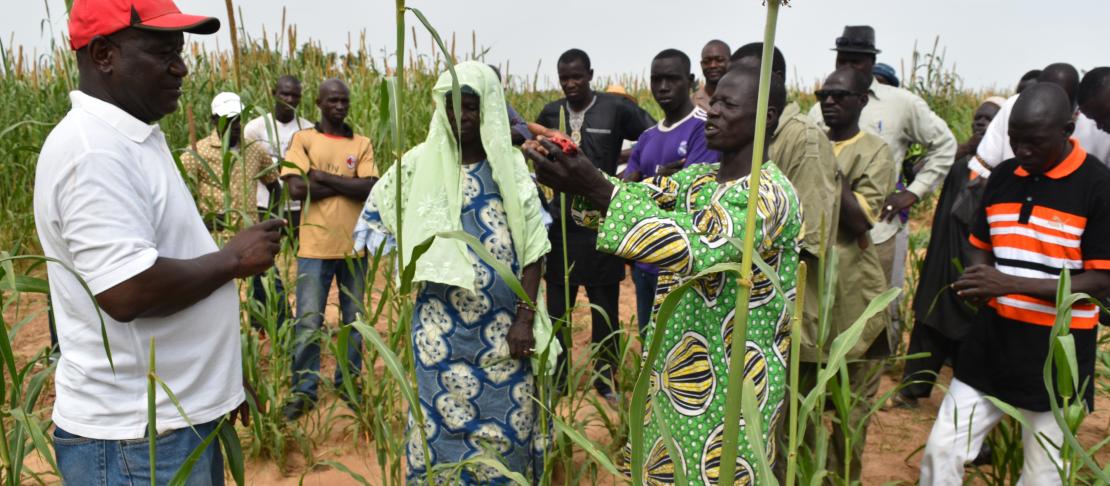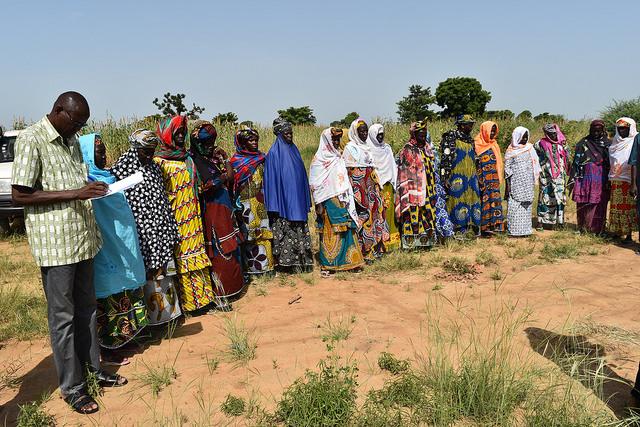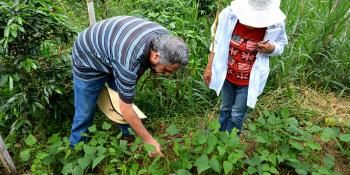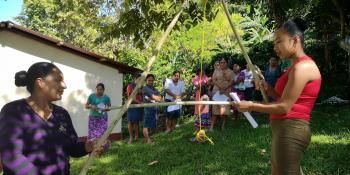Sasakawa – CCAFS: a strategic partnership to scale up Climate-Smart Villages in Africa

CCAFS and Sasakawa Africa Association join efforts to scale up Climate-Smart Villages
The ongoing climate challenge is making the achievement of food security a cause for concern in many African countries.
According to the United Nations, climate change is indicated in different ways in Africa. The major examples of such change range from rising temperatures and disruption of rainfall patterns (frequent droughts and floods, increased intra and inter-annual variability) and water resources (reduction of water reserves) to loss of biodiversity and ecosystem degradation.
According to a study conducted by the Food and Agriculture Organization (FAO), by 2100 food supply must increase by 60% to meet the needs of the growing African population. However, about 5% drop in crop productivity is expected for each 1°C warming above the historical level. These global factors and trends constitute a daunting challenge that requires concerted action.
With regards to agriculture, in some African countries, there is a sequential decline in agricultural yields. This puts additional pressure on an already fragile food production system.
Despite these hard realities, there is still some hope. Optimistic scientific scenarios from the same FAO study forecasts only 6% decline in African agricultural incomes by the end of the century. These scenarios are based on approaches, practices and facilities intended to make the most vulnerable populations resilient to climate change.
In West Africa, the CGIAR Research Program on Climate Change, Agriculture and Food Security (CCAFS) is implementing the Climate-Smart Villages (CSV) approach to address the need for proven and effective climate-smart agriculture (CSA) options. CSA aims to increase food security by sustainably increasing productivity and farm incomes, improving adaptation and building resilience to the impacts of climate change, and reducing and/or eliminating greenhouse gas emissions.
The CSV approach seeks to fill knowledge gaps and stimulate CSA upscaling. The three objectives of CSA need to be achieved simultaneously, in addition to addressing sustainability. The approach is based on participatory action research principles to identify site conditions, provide evidence of CSA effectiveness and importance in a given locality, and facilitate joint development of upscaling mechanisms.
As part of these upscaling efforts, the CCAFS West Africa team and Sasakawa Association in Africa (SAA) have engaged in fruitful collaboration. SAA, particularly its Theme 1: Crop Productivity Enhancement, has shown interest in the CSV approach.
Despite its significant successes and given the undeniable effects of climate change, SAA is aware of the fact that such effects could jeopardize its achievements.
"By spreading CSVs, SAA is seeking to disseminate climate-smart natural resource management and crop production technologies. It is also aiming at building the capacity of its partners so that they can support the most vulnerable in achieving food security and increasing the incomes of vulnerable small farmers who are at the forefront of climate change," explained Dr. Bidjokazo Fofana, Director of SSA's theme on Crop Production Enhancement.

Explanation session from the specialist from the national research institute on some CSA practices in the presence of an SAA worker. Photo: D. Dembélé (CCAFS)
SAA has been implementing climate-smart practices in its technology intervention strategy without including a climate information service. Given that situation, Dr. Bidjokazo Fofana, Director of SSA's theme “Crop Production Enhancement” said:
It is necessary to introduce climate information and agro-advisory services based on Information and Communication Technologies to guide SAA, its partners and farmers in providing agro-advisory services using real-time weather forecasts to make better decisions for the right choice of production technologies and climate-friendly protection measures."
Lessons learned from the visits
Following the previous visits to the Mali and Bukina Faso CSVs, SAA expressed the need to disseminate the concept through the establishment of two CSVs in West Africa (in Nigeria and Mali) and two CSVs in East Africa (in Uganda and Ethiopia) in 2018. To that end, SSA intends, in the near future, to focus on training its workers in basic principles and key steps in the establishment of CSVs.
Moreover, the organization plans to lay the groundwork for a strategic partnership for access to climate information and agro-advisory services in Ethiopia, Mali, Nigeria and Uganda where it intends to replicate CSVs. Similar visits are scheduled for 2018 to CSVs in Ethiopia, Uganda, Ghana and Senegal. The purpose is to learn practical steps in establishing CSVs, as well as to get acquainted with the achievements and lessons learned so far.
Information on Sasakawa Africa Association
Sasakawa Africa Association, which operates throughout sub-Saharan Africa, mainly seeks to support farmers, especially smallholders, to sustainably increase their productivity.
The Crop Productivity Enhancement theme has garnered a great deal of experience, particularly in the dissemination of good agricultural practices such as best techniques of using fertilizers (microdose), improved varieties, etc. through the agricultural learning platform approach, including community demonstration plots, training of extension workers, community facilitators, farmers and other partners.
The CCAFS and SSA approaches have some points of similarity. However, the use of climate information through the CSV approach is a major innovation in which SSA is keenly interested, hence its objective of establishing four CSVs in 2018 in these African countries.
Read more
- Blog: Guided tours to Cinzana Climate-Smart Villages prepare farmers for a better agricultural future
- Blog: Introduction des variétés bio fortifiées dans les villages climato-intelligents du Burkina: La voie vers une résilience des systèmes agro-alimentaires? (French)
Dansira Dembélé is the communications officer of CCAFS West Africa based at ICRISAT West and Central Africa



